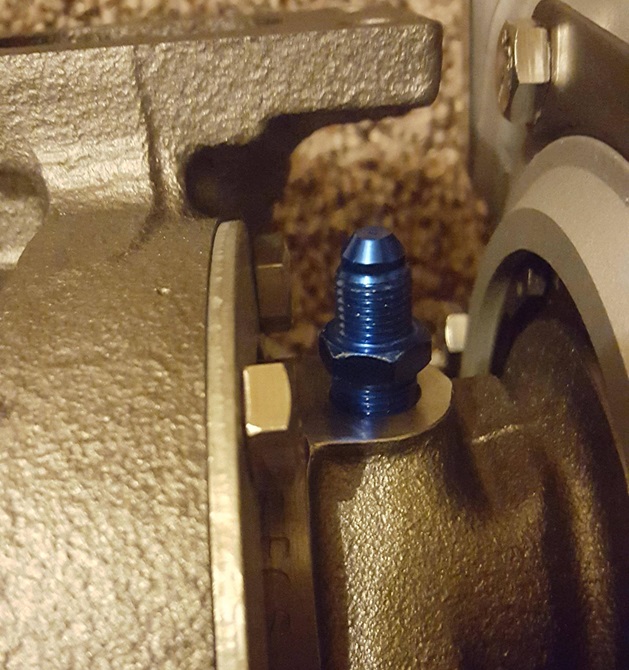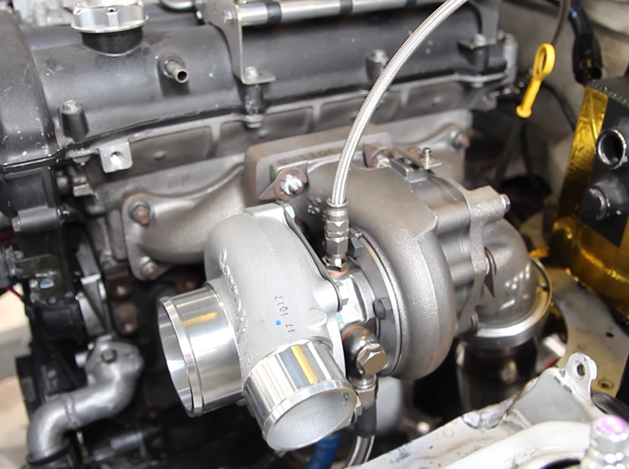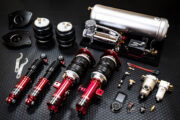In the realm of high-performance engines and turbocharged applications, every component plays a crucial role in achieving optimal power and reliability. One such component that often goes overlooked but holds great significance is the oil restrictor. In this comprehensive guide, we will delve into the world of oil restrictors, shedding light on what they are, the different types available, and what you need to know before purchasing one.
What is an Oil Restrictor?

An oil restrictor, also known as an oil feed restrictor or turbo oil restrictor, is a small but vital device designed to control the flow of oil to specific parts of an engine, most commonly, the turbocharger. The primary purpose of an oil restrictor is to regulate the amount of oil that reaches the turbocharger’s bearings and lubricates them. While it may sound like a minor component, the right oil restrictor can have a significant impact on engine performance, longevity, and efficiency.
Types of Oil Restrictors
There are several types of oil restrictors available in the market, each designed to cater to different engine configurations and performance requirements. Here are some of the most common types:
Fixed Orifice Restrictors: These are the simplest and most basic type of oil restrictors. Fixed orifice restrictors have a constant-sized hole that controls the flow of oil. They are often selected based on the size of the turbocharger’s oil feed inlet and the desired oil pressure. While they are straightforward and reliable, they may not offer fine-tuned control over oil flow.
Adjustable Orifice Restrictors: As the name suggests, adjustable orifice restrictors provide flexibility in controlling the oil flow. They feature a mechanism that allows you to change the size of the orifice, thereby regulating the amount of oil delivered to the turbocharger. This adjustability is beneficial for fine-tuning engine performance and addressing specific needs.
Ball and Spring Restrictors: These restrictors use a ball and spring mechanism to control the oil flow. The ball sits in the oil feed passage, and the tension of the spring determines how much oil can flow around it. The tighter the spring, the less oil flows, and vice versa. This type of restrictor offers precise control and can be a great choice for achieving optimal lubrication in high-performance applications.
Drilled Hole Restrictors: Drilled hole restrictors are custom-made restrictors where the size and shape of the orifice are precisely calculated to match the engine’s requirements. They are typically recommended for engine builders and tuners who have specific knowledge about their engine’s needs and are looking for a tailored solution.
What You Need to Know Before Buying an Oil Restrictor

Before diving into the world of oil restrictors, there are several key factors to consider to ensure you make the right choice for your engine. Here are the essential aspects to keep in mind:
Turbocharger Specifications: The first step in choosing the right oil restrictor is to understand your turbocharger’s specifications. Different turbos have varying oil flow requirements, and it’s crucial to match the restrictor to these needs. Refer to your turbocharger’s documentation or consult the manufacturer for guidance on the appropriate oil feed size.
Engine Oil Pressure: The engine’s oil pressure plays a significant role in determining the oil flow. It’s essential to measure and understand your engine’s oil pressure, as this will impact the oil restrictor’s effectiveness. Generally, lower oil pressure requires a smaller orifice restrictor, while higher oil pressure necessitates a larger orifice.
Turbocharger Journal Bearing Type: Turbochargers come in two primary bearing types: journal and ball bearings. Journal bearing turbos typically require a smaller oil restrictor, while ball bearing turbos need a larger orifice. Make sure you know the type of bearing your turbocharger employs to select the right restrictor size.
Oil Viscosity and Temperature: Engine oil viscosity and operating temperature are critical factors to consider. Thicker oils may require larger orifices, while thinner oils can work with smaller orifices. It’s essential to maintain the proper oil viscosity and temperature for optimal performance.
Adjustability: Consider whether you need an adjustable orifice restrictor for fine-tuning your engine’s oil flow. If you plan to make frequent adjustments to your engine’s performance, an adjustable oil restrictor can be a valuable addition.
Professional Advice: If you’re uncertain about the appropriate oil restrictor for your specific engine setup, seek advice from experts, engine builders, or experienced tuners. They can provide valuable insights and help you make an informed decision.
Quality and Material: Ensure that the oil restrictor you choose is made from high-quality materials that can withstand the demands of your engine. Stainless steel or aircraft-grade aluminum are common materials used in restrictor construction.
Installation: Pay close attention to the installation process. Proper installation is essential to ensure the restrictor functions as intended. Follow the manufacturer’s instructions and consider seeking professional help if you’re unsure about the installation.
Maintenance: Regularly inspect and maintain your oil restrictor to ensure it continues to function correctly. Clean the restrictor periodically to prevent any blockages or clogs that could hinder oil flow.
Conclusion

Oil restrictors may be small in size, but their role in engine performance is immense. Choosing the right oil restrictor can have a substantial impact on your engine’s reliability, power output, and longevity. By understanding the different types of oil restrictors, considering the specific needs of your engine, and seeking expert advice when necessary, you can make an informed decision that enhances your engine’s overall performance. Remember, when it comes to fine-tuning your high-performance engine, the devil is in the details, and the right oil restrictor can make all the difference.


